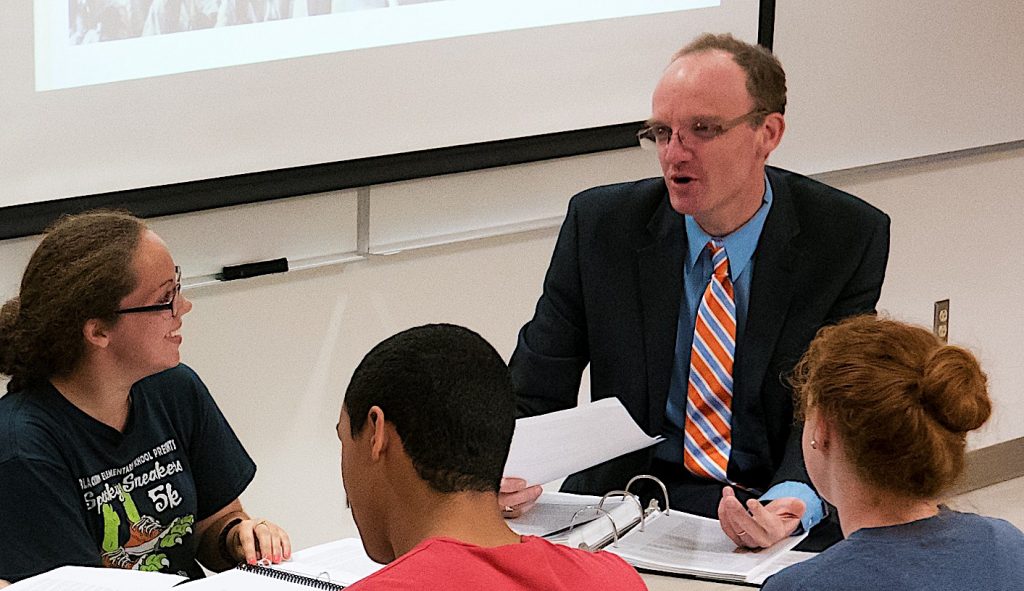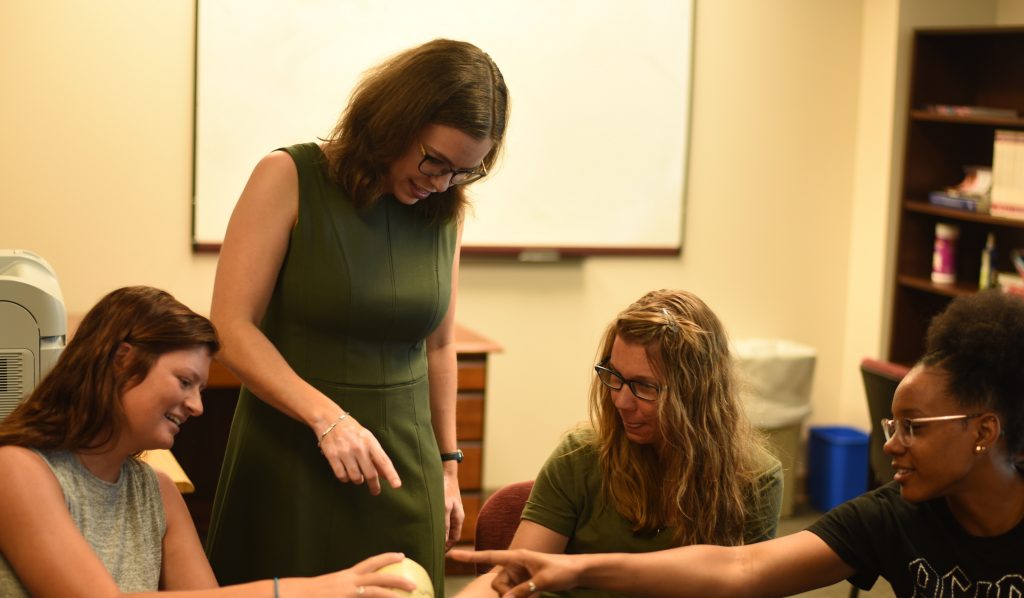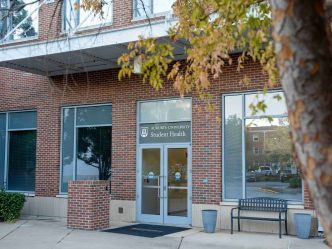While a lot of students at Augusta University are interested in working in health-related fields, many don’t realize there are different avenues to achieve that goal.
A new bachelor’s degree in health, society, and policy from the Department of Social Sciences at Augusta University offers an interdisciplinary curriculum that is ideal for students who are interested in learning about health from a variety of perspectives.
This new degree will prepare students for a career in the human service fields within the health industry, said Dr. Kim Davies, chair of the Department of Social Sciences at the Katherine Reese Pamplin College of Arts, Humanities, and Social Sciences.
“Health, Society, and Policy is our new degree that focuses on, what we like to call, the human and policy side of health and illness,” Davies said. “This degree enables graduates to work in the fields of community health, health behavior, pastoral care and public health. These are some of the fastest growing fields in the health care industry.”
Some of the potential positions for graduates with a health, society, and policy degree could be jobs such as a research assistant for a health consulting firm, a program assistant with a global health organization, an environmental-health safety specialist for a city’s inspection office or a patient relations specialist for a health organization, she said.
“Students in this program can also go into graduate programs in public health, occupational therapy, health-sociology and other social sciences,” Davies said. “And, what a lot of students don’t realize is, they don’t have to major in biology to go to medical school. I know it’s hard to convince them of that, but it’s true. This is an option for them.”
The benefit of an HESP degree
This degree was actually the “brainchild” of the Department of History, Anthropology and Philosophy along with the Department of Social Sciences, Davies said.
“The Health, Society, and Policy degree, otherwise known as HESP, is a degree that brings together anthropology, history and sociology,” Davies said. “It also starts bringing in some public administration-type courses.”
Dr. Andrew Goss, chair of the Department of History, Anthropology and Philosophy, said this degree will train students to recognize the many social and cultural determinants of health.
“The health care challenges are not just about healing individual bodies,” Goss said. “There are a whole range of social, economic and even political issues that impact health.”

Students seeking this degree will apply knowledge of human behavior and the social environment to evaluate the risks and challenges to health for diverse populations.
“This is a way to bring an interdisciplinary approach to understanding the challenges around health and health care,” Goss said. “There are already some flagship universities in Arizona, Utah, Texas, Michigan and Illinois that are starting to offer this degree as an option for students who want to have broad training, but they are interested in a medical career or some path into the health world.”
However, Augusta University is one of the first public colleges in the South to offer this kind of degree, Goss said.
“We’ve checked and this is one of the first public universities in the South to offer a degree like this with a health-society combination,” Goss said. “Vanderbilt University has had something like this for several years, but we are one of the first public universities in the South.”
This degree is appealing to many students because health care is one of the biggest challenges facing the 21st century, Goss said.
“When looking at this major challenge, students in this program will study the individual’s relationship to the communities they belong to by completing courses about health, health care and illness in diverse social and cultural contexts,” Goss said.
This approach will allow students to view health care in a different light, Goss said.
“For example, think of substance abuse,” Goss said. “There are a whole range of challenges that are tied up with trying to solve substance abuse. And some of it, obviously, is happening in doctors’ offices, but there are all kinds of wider considerations that impact substance abuse.”
Looking beyond just the disease
Dr. Elizabeth Culatta, an assistant professor of sociology at Augusta University, teaches some of the courses associated with the Health, Society, and Policy degree.
“So often in medicine we focus on the disease,” Culatta said. “We ask, ‘What is the person sick with?’ But we need to think about these wider questions of income, socioeconomic status, lifestyle, diet, habits, employment, education and family structure. All of these social factors affect who gets what diseases, how they are treated, how quickly they are treated and how thoroughly people are treated.”

This degree explores the social determinants of disease, Culatta said.
“Social determinants of disease are basically all of the social factors that lead people to be more vulnerable or susceptible to some diseases,” Culatta said. “There’s a social aspect of medicine and health and illness.”
Therefore, students who are interested in studying how human behavior and policymaking impact health should consider this new degree, she said.
“We, as a society, decide what our policies are going to be and who has access to what kind of health care,” Culatta said. “For instance, in my Sociology of Health Care class, we talk about, how did we get the health care system that we have today? What did the history of that look like and what efforts have been made to try to change that system?”
These are the kinds of questions that can improve health care in the future, Culatta said.
“This undergraduate degree promotes a behavioral approach to understanding health,” Culatta said. “It asks students to think about issues from more than one perspective, so it’s a valuable degree that can lead to a number of different occupations within the health care industry.”
 Augusta University
Augusta University




